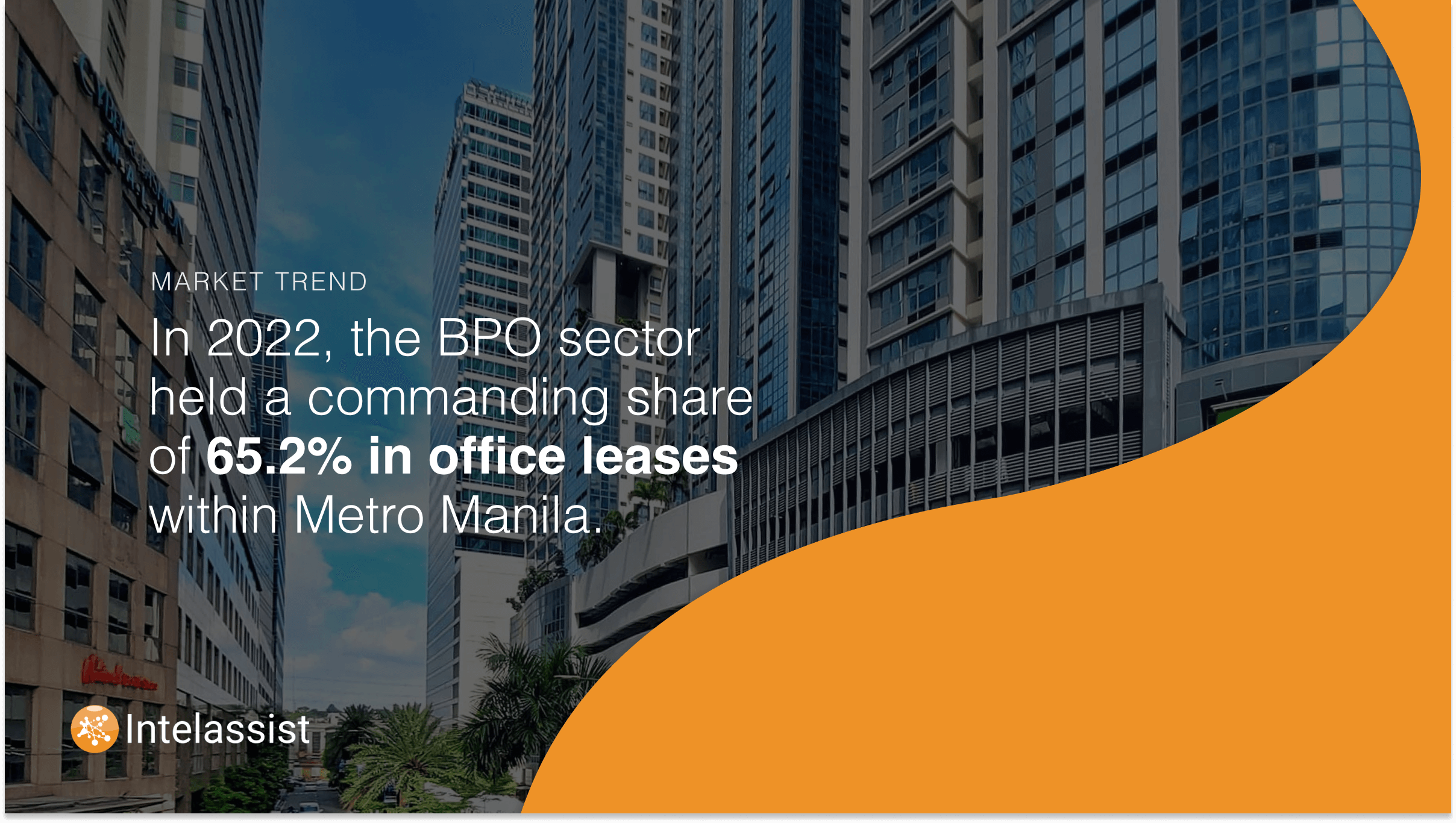Article
Navigating Current Trends and Future Trajectories: Philippines’ BPO Industry
In recent years, the Business Process Outsourcing (BPO) industry in the Philippines has emerged as a powerhouse, significantly impacting the nation’s economic landscape. In 2021, the sector contributed a substantial 7.5% to the total Gross Domestic Product (GDP), reflecting its vital role in driving economic growth. The latest data from the IT and Business Process Association of the Philippines (IBPAP) unveils a compelling narrative of consistent growth, despite the challenges posed by the pandemic and macroeconomic uncertainties.

From 2016 to 2022, the BPO industry exhibited commendable resilience, boasting a compounded annual growth rate of 5.1% in terms of revenue and 4.6% in headcount. This steadfast growth not only defied economic slumps but also had a tangible impact on the real estate market, particularly in the office segment. In 2022, BPO transactions accounted for a significant 65.2% of office leases in Metro Manila, underscoring the symbiotic relationship between the industry and the real estate sector.
However, the industry faces short to medium-term headwinds, marked by a recent policy shift allowing BPO companies registered with the Philippine Economic Zone Authority (PEZA) to transition to the Board of Investments (BOI). This strategic move enables companies to implement complete remote work without sacrificing fiscal incentives. Approximately half of PEZA’s 1,000 registered companies have made this transition, a decision that may have repercussions on the office market in the short term. Anticipated adjustments in office spaces and a potential decrease in demand may result from firms aligning their operations with new work paradigms.
Despite these challenges, the BPO sector is projected to remain a key player in driving office demand in the Philippines. IBPAP forecasts continued expansion, with leading BPO companies planning to either maintain or increase their office space by approximately 10.0% over the next three years. The rise of hybrid work models and a preference for flexible workspaces are expected to contribute to this ongoing trend, mitigating the impact of the structural shift witnessed in the industry.
Looking ahead, the BPO industry has ambitious growth plans for the next five years. With a target revenue of $59 billion and an envisioned workforce of 2.5 million, expansion strategies include enhancing business services, upskilling the workforce, improving the ease of doing business, and bolstering digital infrastructure. This forward-looking approach positions the BPO industry as a resilient and dynamic force, potentially solidifying its status as a backbone of the real estate market in the future.
In conclusion, while the BPO industry navigates current challenges, its ability to adapt, innovate, and set ambitious growth targets signals a trajectory that remains upward. The industry’s intricate interplay with the real estate sector reflects a symbiotic relationship that is likely to endure, contributing significantly to the economic narrative of the Philippines in the years to come.
Explore our blog
Dive deeper into related topics and expand your knowledge by exploring these handpicked articles from our blog. Click on any title below to learn more.

The Advantages of Offshore Architecture with Intelassist
Architectural offshoring optimizes costs, provides access to specialized expertise, and enhances productivity. Intelassist streamlines processes, helping firms deliver exceptional results in a competitive market.

Exploring the Scope of Architectural Offshoring with Intelassist
Architectural offshoring extends services beyond traditional boundaries. Intelassist helps firms streamline workflows, accelerate project timelines, and enhance outcomes through specialized offshore expertise and services.

Unlocking Efficiency: A Guide to Architectural Offshoring
Architectural offshoring provides immense opportunities for firms to optimize operations and achieve strategic goals. Partnering with Intelassist helps navigate offshoring complexities and unlock new growth in the architecture industry.
contact US
How can we help?
Get in touch with one of our local experts today. We typically respond within 24 hours.



